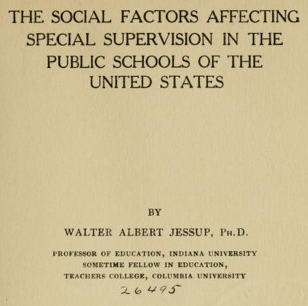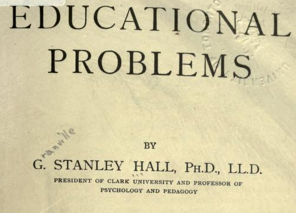Library Origins of Bookworm Volumes
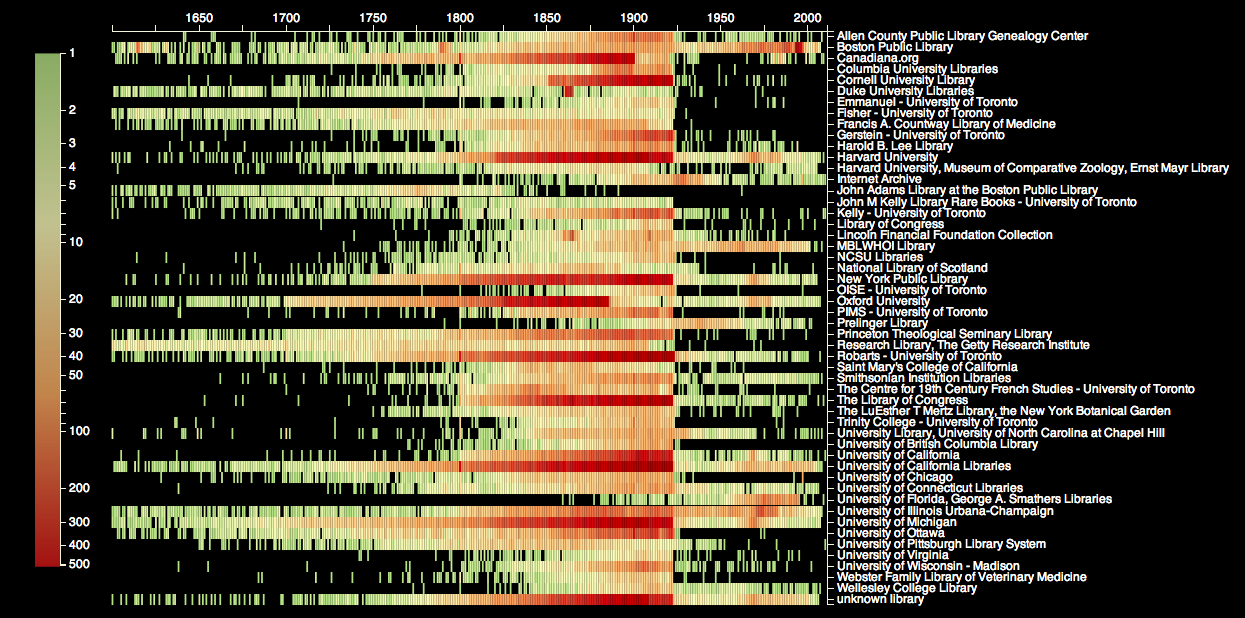
Everyone knows what attention is. It is the taking possession by the mind, in clear and vivid form, of one out of what seem several simultaneously possible objects or trains of thought.
William James, Principles of Psychology
Whatever vision of the digital humanities is proclaimed, it will have little place for the likes of me and for the kind of criticism I practice: a criticism that narrows meaning to the significances designed by an author, a criticism that generalizes from a text as small as half a line, a criticism that insists on the distinction between the true and the false, between what is relevant and what is noise, between what is serious and what is mere play.
Stanley Fish

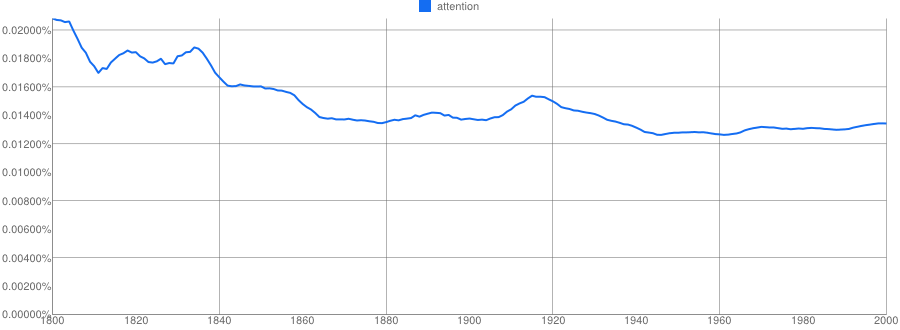
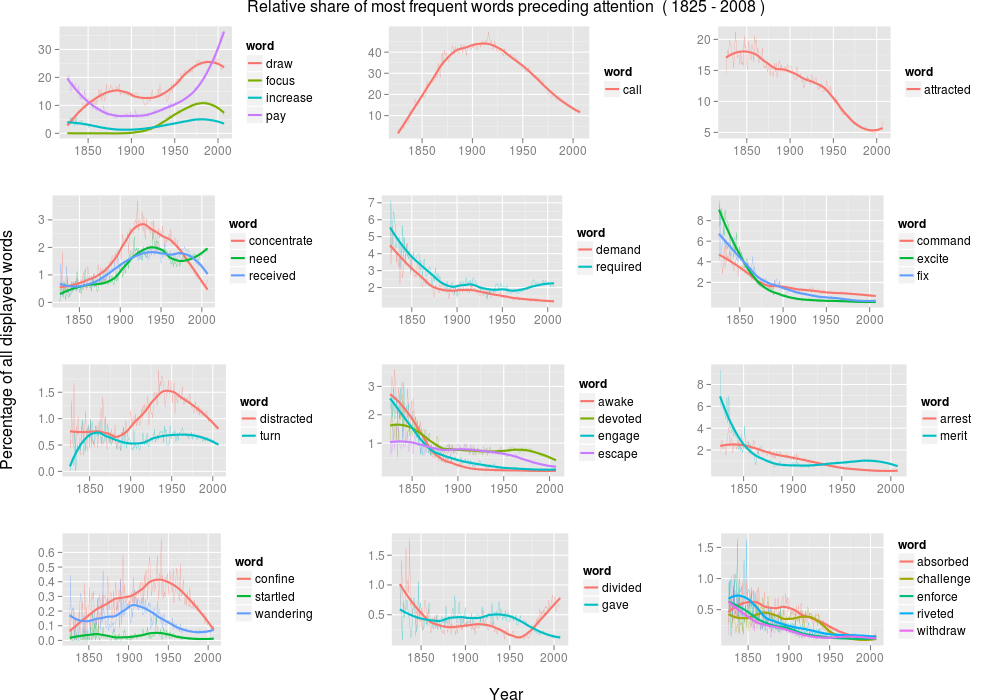
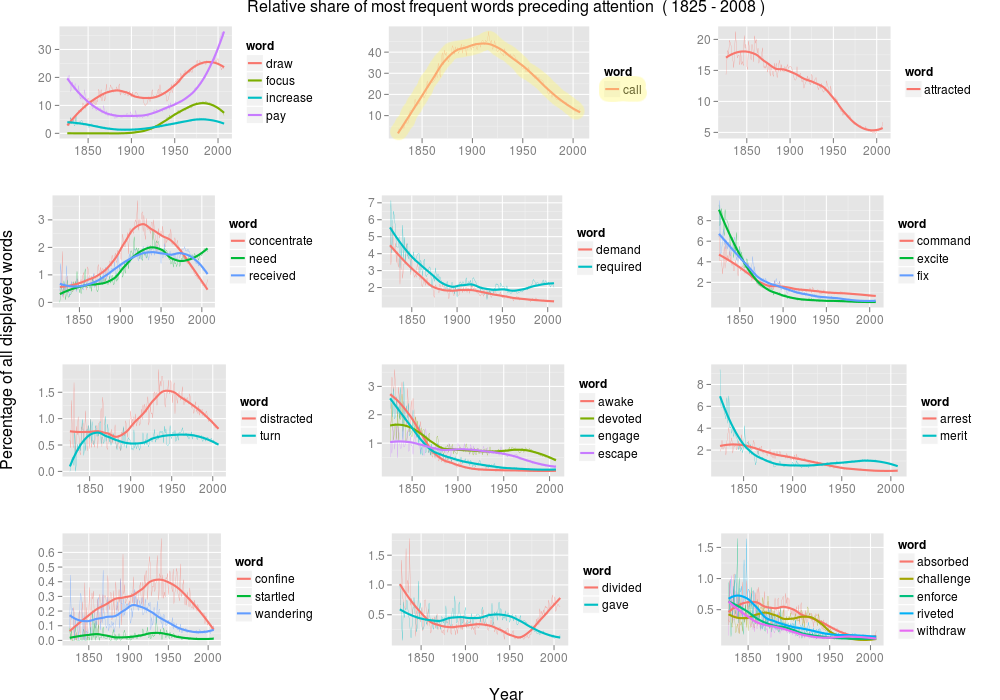


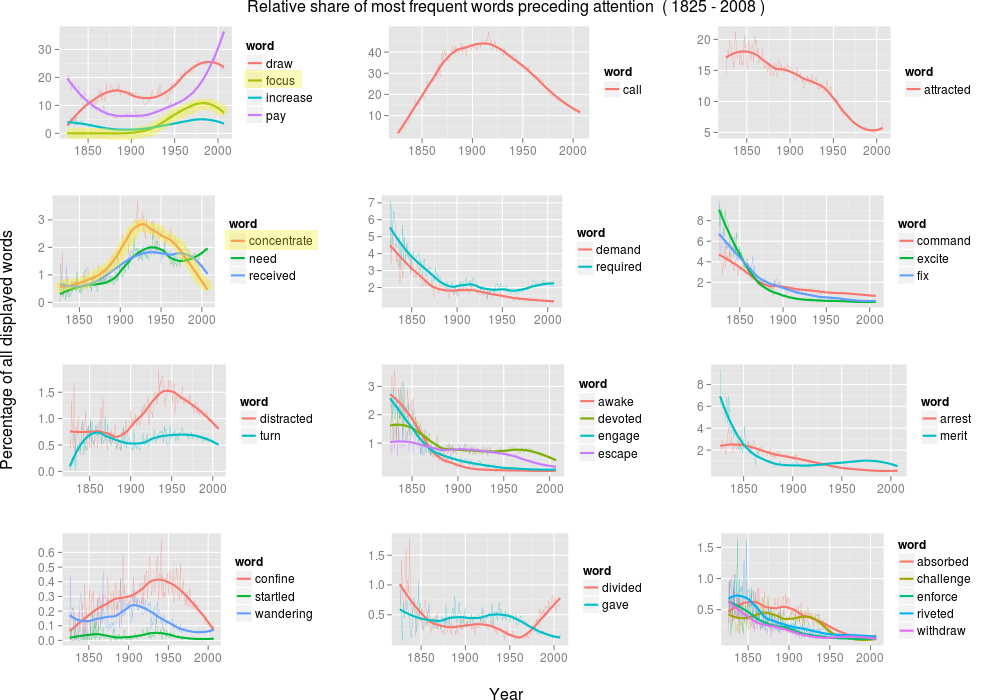

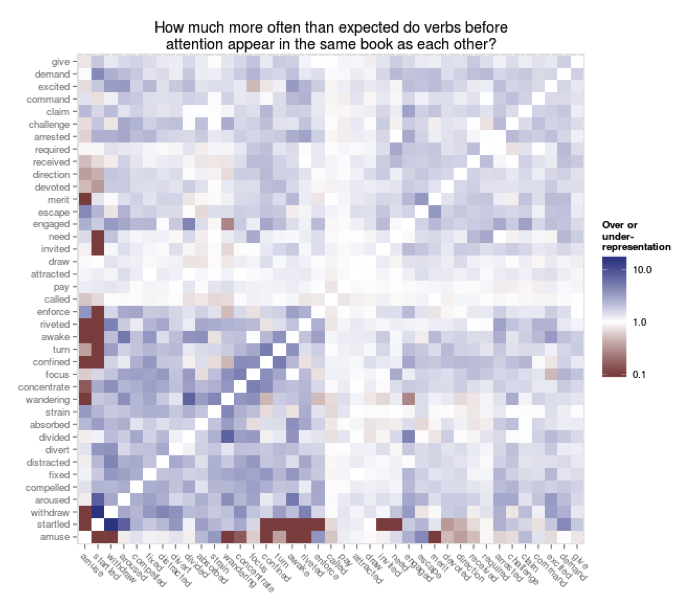

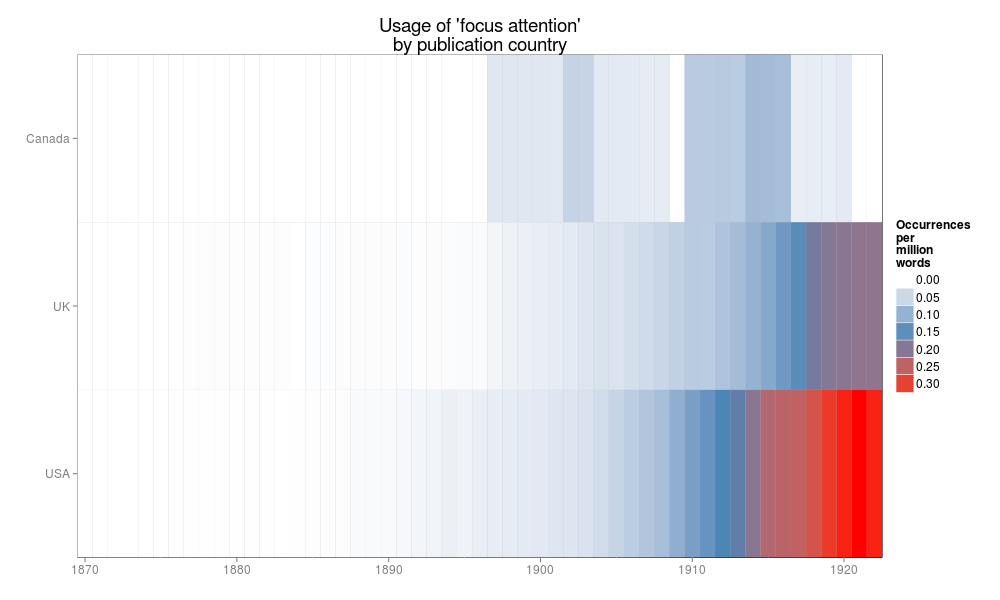
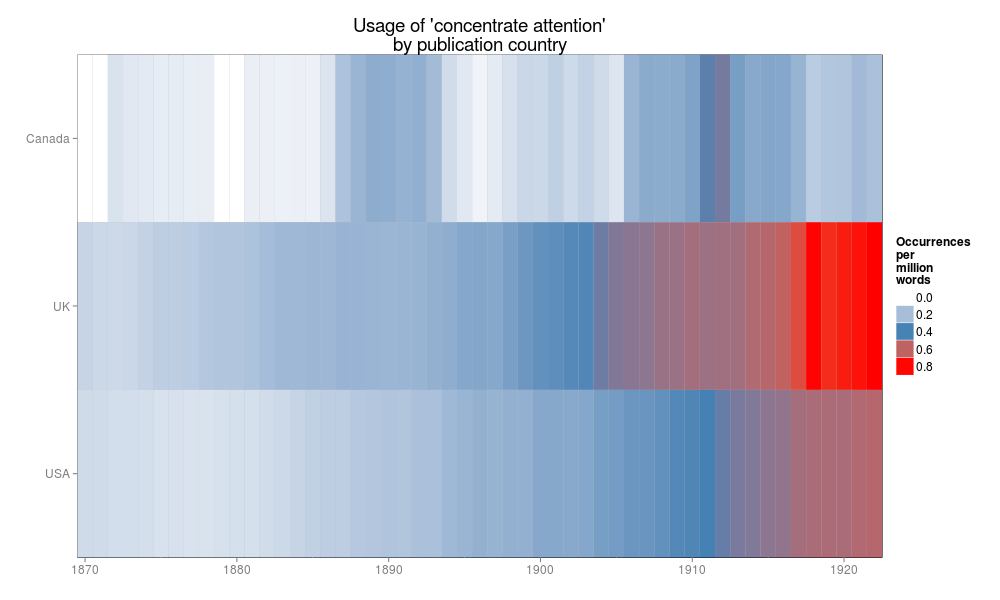
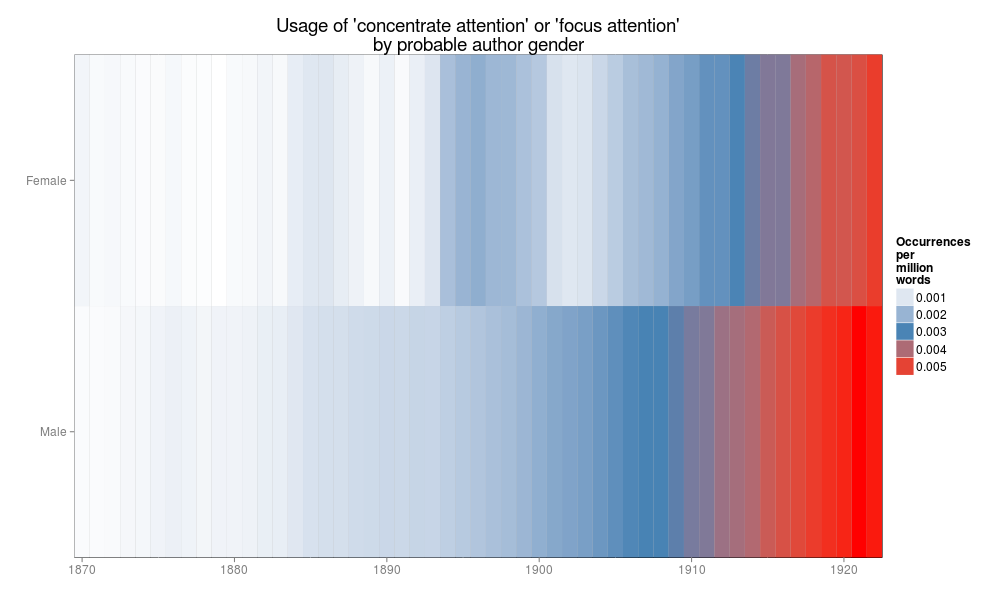
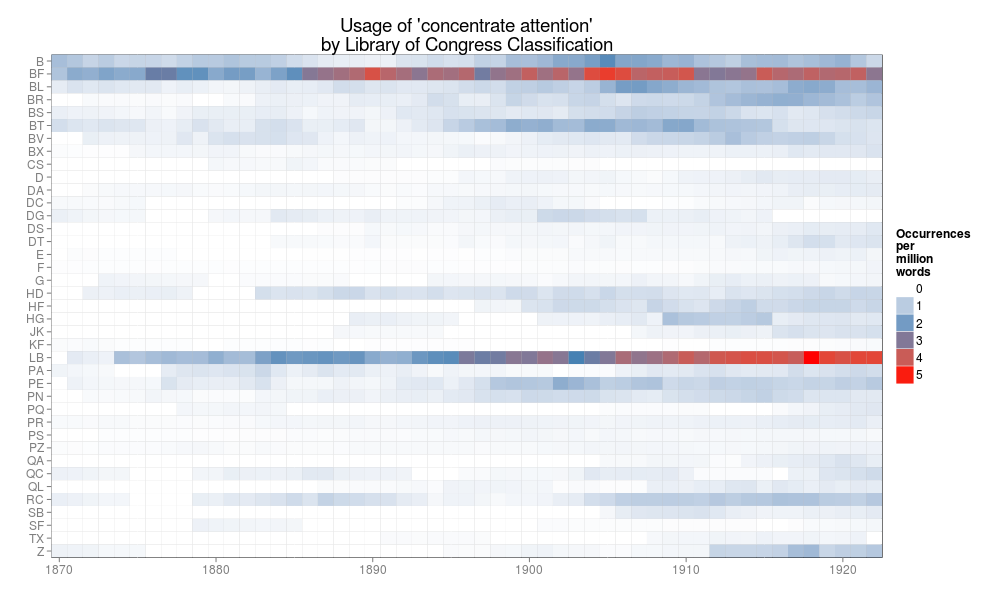
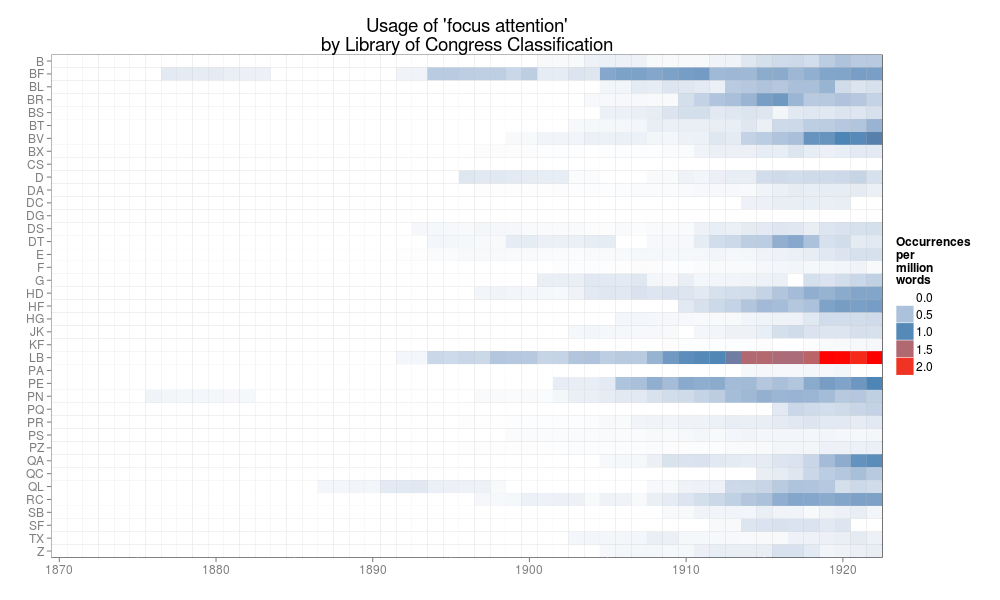
Everyone knows what attention is. It is the taking possession by the mind, in clear and vivid form, of one out of what seem several simultaneously possible objects or trains of thought. Focalization, concentration, of consciousness are of its essence.
William James, Principles of Psychology
Those who lay stress on the unity of mind regard it as almost evident a priori, that but one concept can occupy the focus of attention at a time... Attention, like the lens of the eye, is now [ie, first] accommodated to act as an instrument of near focus, high magnification, but limited aperture, and again [then] as one of distant focus, small magnifying-power, but wide range
Can the Mind attend to two things at once? Science: July 18, 1887


